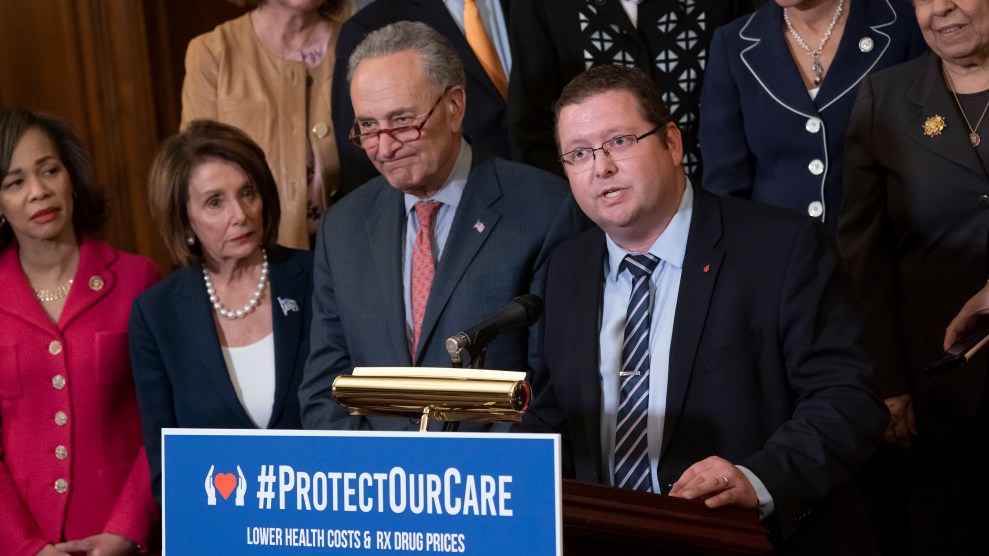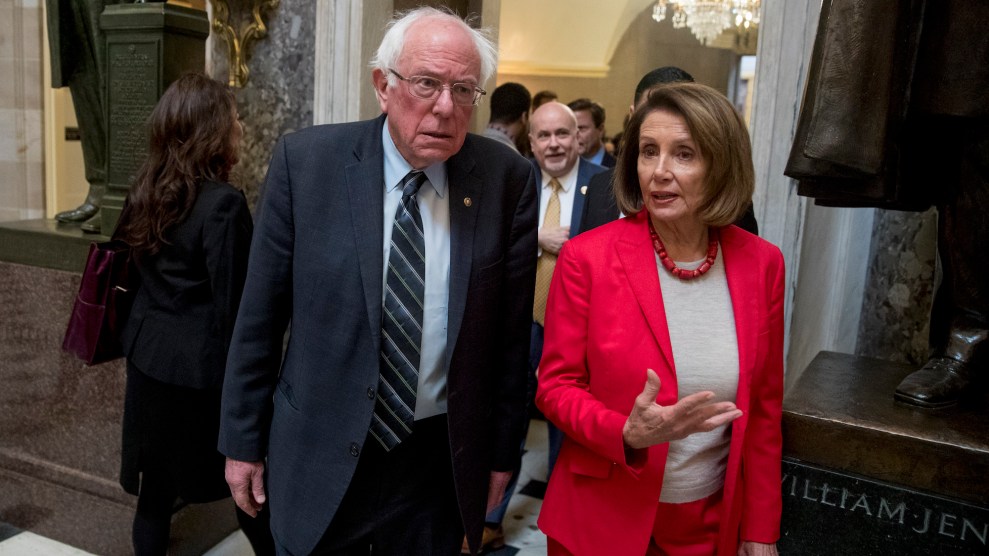
J. Scott Applewhite / AP
House Democrats voted Thursday to roll back a Trump administration rule that could undermine Obamacare by expanding the duration of short-term health plans—coverage Democrats have nicknamed “junk insurance.” The vote is largely symbolic; the Democratic measure is not expected to pass the GOP-controlled Senate.
Short-term, limited-duration health plans were originally designed as temporary solutions to cover individuals who experienced gaps in coverage for no more than three months. These policies cost less than plans that offer better quality coverage, but they do not comply with the Affordable Care Act’s standards requiring that insurers cover a set list of “essential” health care. Under these short-term plans, insurance companies may deny coverage to people with pre-existing conditions, and they typically exclude some benefits—such as prescription drugs, maternity care, and mental health care—that are required by Obamacare.
Last year, Trump expanded the duration of these plans to up to three years. As part of the 2017 tax cut bill, Congress eliminated the individual mandate, meaning that individuals will no longer incur a tax penalty if they don’t have Obamacare-compliant health insurance. Democrats fear that these Trump-era changes will lead more healthy individuals to purchase cheap, short-term plans, raising premiums for those still buying insurance through Obamacare’s marketplaces.
The House vote is part of a wider effort among Democrats to confront Trump over his attacks on Obamacare in the run-up to the 2020 elections.
















